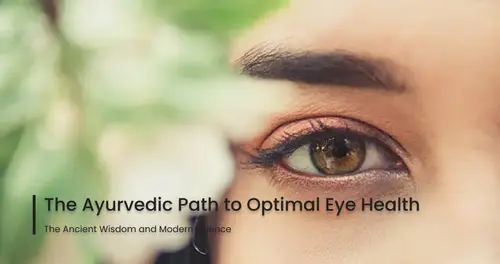Call : +91 485 225 3007
email : support@sreedhareeyam.com
Experts chart roadmap for integrated diabetic retinopathy management at 'Sunetra 2026'

Introduction:
Our eyes are incredible organs that allow us to perceive the world around us. We often take them for granted, but did you know that what you eat can have a significant impact on your eye health? In this article, we will explore the fascinating connection between diet and ocular well-being, and how the food on your plate can play a crucial role in maintaining good vision.
The Global Perspective:
Globally, around 250 million people suffer from varying degrees of vision loss. This includes conditions like cataracts and age-related macular degeneration (AMD), which tend to affect older adults more frequently. With an aging population, the number of people affected by these eye conditions is expected to rise exponentially.
The Oxidative Stress Connection:
To understand the link between diet and eye health, we must first delve into the science behind it. The eye is highly susceptible to oxidative stress due to its high oxygen consumption, concentration of polyunsaturated fatty acids, and constant exposure to high-energy visible light. This combination can lead to the production of harmful reactive oxygen species that damage ocular tissues.
Antioxidants to the Rescue:
Here's where your diet comes into play. Antioxidants are like the body's defense system against oxidative stress, and they can be found in various foods. Vitamins C and E, carotenoids like lutein and zeaxanthin, and minerals such as zinc and copper are some of the key players in this eye-protective game.
The Age-Related Macular Degeneration (AMD) Puzzle:
AMD is a leading cause of severe vision impairment, particularly in older populations. While epidemiological studies suggest that diet is a modifiable risk factor for AMD, it's important to note that not all studies agree on the extent of its influence. There are many confounding factors at play, making it challenging to draw definitive conclusions.
The Role of Randomized Controlled Trials (RCTs):
To get to the bottom of the AMD-diet connection, researchers have turned to randomized controlled trials (RCTs). These studies are considered the gold standard in scientific research. Surprisingly, some RCTs have found that antioxidant vitamin and mineral supplementation may not prevent the development of AMD.
The AREDS Study:
One landmark RCT, known as the Age-Related Eye Disease Study (AREDS), did show promise. It found that a specific combination of vitamins and minerals reduced the risk of AMD progression in people with intermediate AMD. This means that for those at the highest risk, these supplements were beneficial.
Cataracts: A Cloudy Issue:
Cataracts, the visible opacity within the eye's lens, affect millions worldwide. Oxidation reactions within the lens contribute to their development. Observational data suggest that a diet rich in vitamins C and E, along with lutein and zeaxanthin, could reduce the risk of cataracts. However, RCTs have not conclusively supported this.
Looking Forward:
In conclusion, age-related eye diseases are a growing public health concern. While diet and nutrition show promise in mitigating their impact, the relationship between the two is complex. The role of antioxidants in eye health remains a topic of ongoing research. As we gain a better understanding of nutritional strategies for optimizing eye health, we may unlock new ways to protect our vision for a lifetime.
So, the next time you sit down for a meal, remember that you're not just nourishing your body; you're also nourishing your eyes. A balanced diet rich in antioxidants could be your ticket to a brighter, clearer future.

February 18, 2026

February 18, 2026

February 18, 2026

February 18, 2026
We use cookies that are necessary for the smooth operation of the website, to improve our website and to display advertising relevant to you on social media platforms and partner websites. By clicking "Accept all", you agree to the use of cookies for convenience features and statistics and tracking. You can change these settings again at any time. If you do not agree, we will limit ourselves to technically necessary cookies. For more information, please see our privacy policy .